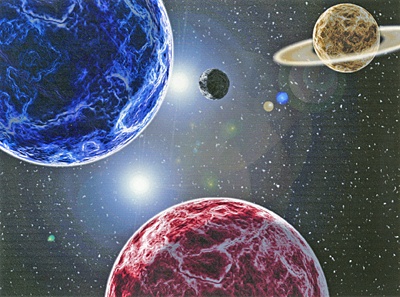All Nonfiction
- Bullying
- Books
- Academic
- Author Interviews
- Celebrity interviews
- College Articles
- College Essays
- Educator of the Year
- Heroes
- Interviews
- Memoir
- Personal Experience
- Sports
- Travel & Culture
All Opinions
- Bullying
- Current Events / Politics
- Discrimination
- Drugs / Alcohol / Smoking
- Entertainment / Celebrities
- Environment
- Love / Relationships
- Movies / Music / TV
- Pop Culture / Trends
- School / College
- Social Issues / Civics
- Spirituality / Religion
- Sports / Hobbies
All Hot Topics
- Bullying
- Community Service
- Environment
- Health
- Letters to the Editor
- Pride & Prejudice
- What Matters
- Back
Summer Guide
- Program Links
- Program Reviews
- Back
College Guide
- College Links
- College Reviews
- College Essays
- College Articles
- Back
Discovery, and How it's an Ongoing Process
You may have heard of the quote, “Born too late to explore the Earth; born too early to explore the galaxy,” and you might even agree with it. It’s a very common misconception that the world that we have been born into is boring when it comes to exploration and discovery, and that the only way to overcome this is to get a flux capacitor and a bunch of plutonium from some Libyan Nationalists, and time travel into the future, to flying cars and hoverboards (the real kind). However, I argue that there are still infinite things to discover, and they could be discovered in your lifetime, too. One major subject is Dark Matter and Dark energy.
Before the 90’s, it was a common theory among astronomers that the rate at which the universe is expanding is slowing down, but later found that it was the opposite, as in it was accelerating. This was indicated by Doppler shift, which is a change in wavelength of sound or light waves resulting from the change in distance from the wave source and the observer. When the shift is observed as blue, it means that the movement of the light source is moving toward the observer, when its observed as red, as it was, it indicates that the movement of the light source is moving away from the observer. After this was concluded, naturally, one of the first questions asked was: Why is everything moving away from everything?
Dark energy was first hypothesized by Albert Einstein in 1917 as the “cosmological constant,” in order to counteract gravity, to prove that the universe was static, meaning that as gravity pulls things together, dark energy drives things apart. Edwin Hubble proved the “static” part wrong in the 1920’s, however, the theory wasn’t completely wrong. When calculating the amount of matter and energy needed in the universe to make it flat, the calculation was off by about 30%, so there was an obvious missing factor, thus the re-proposal of dark energy and matter. Though we cannot directly detect it, due to the fact that it might be an absolute WIMP (weakly interacting massive particle), it can be studied with the effects it has on visible objects. For example, when a Hubble space telescope image of a distant galaxy cluster being bent by another cluster in the foreground of the image, it was found that dark matter causes this distortion, and the phenomenon was named “gravitational lensing.”
You’re probably still wondering what this “Dark matter” and “Dark energy” stuff is, as I haven’t really defined it directly at any point. While NASA defines Dark matter as an “invisible form of matter that makes up most of the universe’s mass and creates its underlying structure” and Dark energy as the “repulsive force that causes the universe to expand at an increasing rate,” nobody actually knows what this stuff is. However, we do know a little about what it isn’t; It can’t be anything similar to “normal” matter because it would emit particles that we could detect and it can’t be a form of antimatter because when antimatter reacts with normal matter it produces gamma rays.
When it comes to Dark matter and energy, we only know 3 things for sure; it exists, it interacts with gravity, and that there's a ton of it. It was calculated that dark energy accounts for about 70% of the contents of the universe, dark matter for about 25%, leaving our “normal” matter at an astounding 5%. And yet, we still don’t know that much about our matter.
As NASA put it, “Exploration is in the DNA of our species – the desire to discover and inhabit distant worlds, whether across Earthly oceans or vast regions of space.” Curiosity has been our instinct, is our instinct, and will forever be our instinct. As much as we try to answer questions and try to come to a final conclusion for everything, every time we succeed to answer a question, we are given more loose ends. As an example, if we were to answer the question of what dark matter and dark energy are, we would be left with questions like why it’s there, is there anything we can do with it, when was it created, etc. In conclusion, we do not live in a “boring” era, and as long as the human race exists, there will be unanswered questions.

Similar Articles
JOIN THE DISCUSSION
This article has 0 comments.
